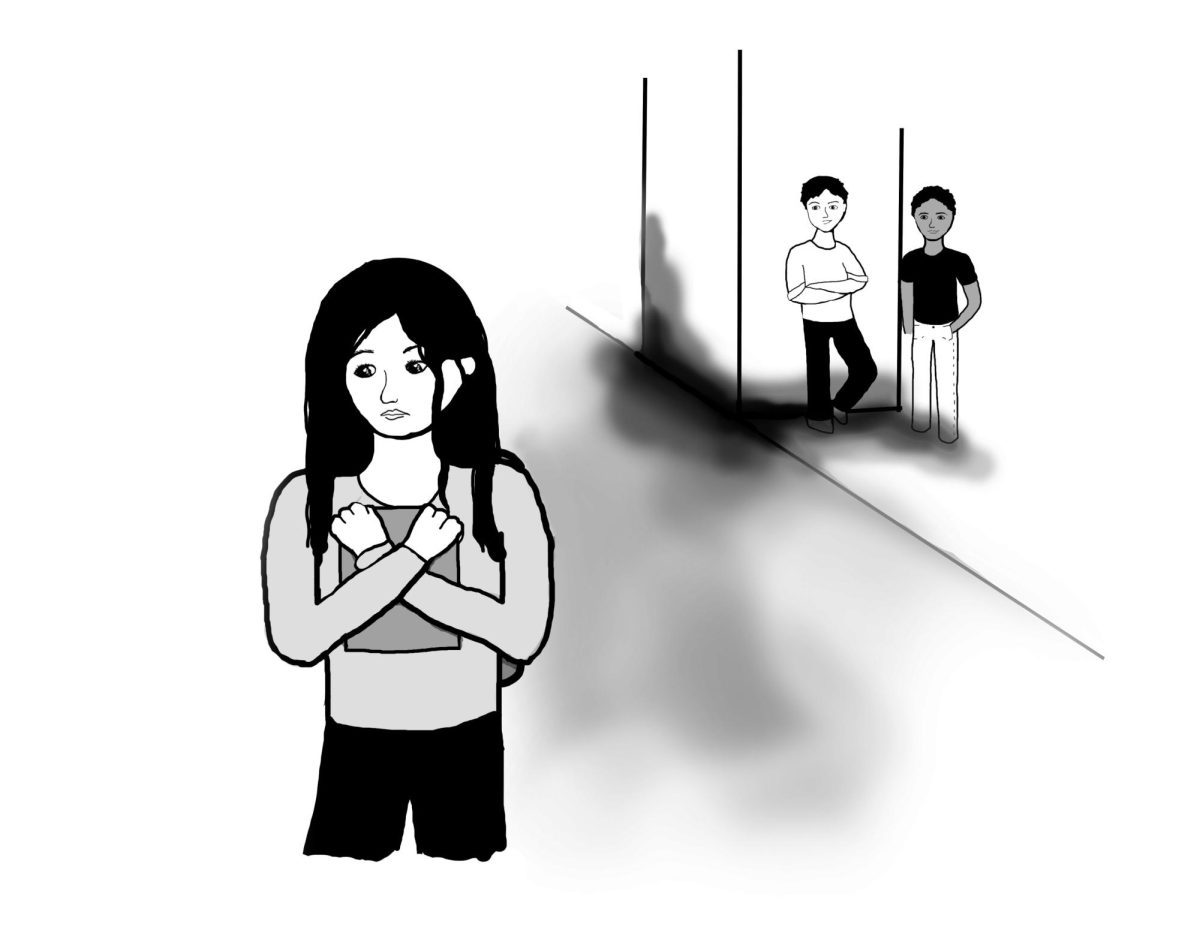By protesting the Vietnam War draft, students in the late 60s were increasing their own likelihood of being drafted. Despite this threat, Whitman students continued to make their opinions heard.
Between 1967 and 1970 “The Hershey Directive” put in place by General Lewis Blaine Hershey said that the act of protesting could actually void a person’s education deferment and put him or her at risk of being drafted immediately. Because they saw this as an impediment to free speech, many Whitman students felt that military recruiters should not be allowed to solicit on campus.
In the morning of April 15, 1968, senior Charles Lawrence, who now teaches at Seattle University, and junior Michael De Grasse, who is now a lawyer in Walla Walla, were arrested for blocking military vehicles from entering the Student Union Building (which has since been replaced by Maxey Hall).
“People viewed it as an anti-war protest, and it was. But it was a free speech effort as well,” said De Grasse in his address to the class of ’69, who had their reunion last weekend. “Just for protesting, you could be subjected to a draft, and this made many people afraid to protest. We thought this wasn’t something the school should put up with, and the entire student congress had voted for recruiters to be barred.”
According to De Grasse, the protest was not a “momentary eruption,” rather, it took a great deal of planning. The organizers chose a designated “leaker” to spread news of the protest before it occurred, and 15 to 20 students volunteered to help block the road. De Grasse also said that this was not merely a “romantic effort.” Each participant expected to be suspended and arrested.
“The plan was that we would be asked to leave, and all but two of us would leave. The two of us would be arrested and then two more would sit down. We would continue this for about a day, and then the recruiters would get bored with it and go home,” said De Grasse.
However, the plan was destroyed when they found out that instead of just being taken to jail, slapped on the wrists and released, the protesters would be locked up until they paid a $100 bail each.
“We simply didn’t have the funds for everyone to get arrested,” De Grasse said.
Tom Edwards, who was an Assistant Professor of History here in ’68 and also spoke at the reunion, said that he fully supported the student protests on campus during the 60s and 70s.
“I was very supportive of student activism. Sometimes students went a little too far, but they were just young!” he said. “The students in ’68 were revolutionary, they were a different type of students. It was the years between ’64 and ’72 that shaped Whitman into what it is today.”
Edwards said that he isn’t sure how he feels about the way the administration handled this issue.
“I’ve often thought about the idea that maybe the administration overreacted, but I’m really not sure if anything else could have been done,” he said, during a phone interview. “On the one hand, shouldn’t military recruiters be allowed to recruit? But on the other hand it was a very tense time. Hershey said that those who protested the draft would lose their draft deferment, and that is a violation of American Rights.”
Protests such as this one were going on all across the country, but according to Edwards not all of them were as nonviolent as this one.
“In 1968, a professor from Berkeley came to visit, and he said that there’s no problem here. There’s no graffiti, no violence. But we just haven’t had any violence because it’s a small enough school that if students think something is wrong then they can go talk to someone about it. At a school like Columbia it is a different story.”
Ultimately, in 1970 the Supreme Court ruled that “The Hershey Directive” was unconstitutional. President Richard Nixon then removed Hershey from the Selective Service but appointed him as presidential advisor and promoted him to a full four-star General. At that time, Hershey was the only one to have received this rank without ever having served in combat.
When Nixon came to visit the campus in September 1971, Whitman activists flew the American Flag backwards to protest war and his actions as president.
Lawrence, who also spoke at the reunion, sees the draft threat as a defining part of his college years.
“Without the draft, we would have had a very different experience at Whitman,” he said.
He also has only one regret about the way students conducted the 1968 protest.
“We should have just had them arrest everybody and not worried about the bail!” he said.









